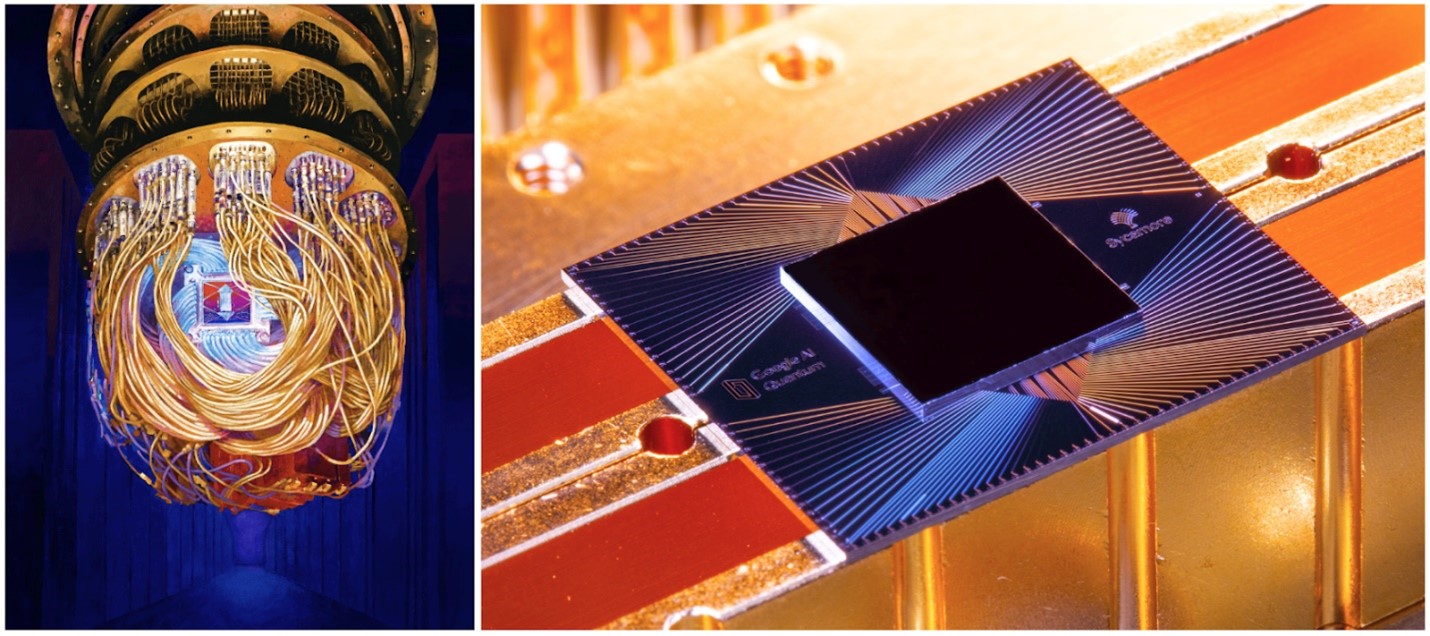If the rapid pace at which groups like Google are spooling up amped-up quantum computers continues, so too drops the shot clock to fix or replace cryptographic algorithms used to secure just about everything before they become quite crackable. The reason: The fundamental structure of computing – the bit – gets revamped to contain massive amounts of data each in a thing called qubit (short for ‘quantum bit’). After claiming quantum supremacy back in 2019, Google Quantum AI has now built the second generation of a computer that can digest and process an insane amount of them in record time, allowing them to hammer away at authentication until it breaks.
And this is just the beginning.
Quantum computing is a famously quirky – but promising – technology, highly susceptible to tricky noise problems that have bedeviled the tech, which tend to cause them to go berserk. But get them quiet enough to be maximally useable, and you fundamentally change computing power, by orders of magnitude.
To do that, a new system of minimizing noise and still getting usable information processed utilizes a scheme called random circuit sampling (RCS), which allows 70-qubit processing, vs. the last generation’s 53-qubit on the Sycamore quantum processor. That’s a HUGE difference in processing power. There are substantial efforts to push toward even higher qubit processing if the tech can either make quantum less noisy, optimize its performance amidst increased noise, or, most likely, both.
Even with the current level of computing power, however, the team estimates, “we conclude that our demonstration is firmly in the regime of beyond-classical quantum computation.” Basically, that means whatever supercomputers the world is using now will rapidly become dinosaurs, somewhat akin to condensing the computing power of yesterday’s mainframe into a smartphone you probably have sitting in your pocket. And it’s not just the scale of the computing speed: quantum computing is by nature massively parallel, with qubits able to effectively compute many things at the same time.

Looking like the set of a sci-fi movie, the latest entrant by Google’s team is setting compelling speed records and promises more. It kind of also looks like a birthing facility for machine battery drones of the future, but so far none of that.
That means the cryptography we use every day that makes up the authentication we use for – everything – to make authentication too tricky to guess or reverse engineer just got more reverse engineerable. Current cryptographic tokens in wide use base their security breakability on whether current practical computing platforms could iterate through enough combinations to guess the right combination to crack the lock within some practical timeframe. Even using modern supercomputers with modern cryptography in wide use, guessing the right combination could take years, possibly many years.
But what modern supercomputers can guess in many years, the second generation of Sycamore processor using RCS can guess in seconds or minutes, meaning it can conceivably break current “classical computer” security algorithms.
What will we use next for encryption? There is a field of study using quantum computing to generate these far more complex computations that would be more difficult to guess. This partially due to increasing the current practical limitations of what is considered a “random number” by classical computing, which then becomes the seed for far more secure algorithms used in cryptography. Even then, when the new quantum “killer app” happens, it will take years to roll out. That favors the attacker.
Even if it did roll out quickly, it is very unlikely that the swarms of security gadgets out there (think routing hardware for the whole internet, or government-level cryptographic token tech) will be initially able to adopt the new schemas without significant hardware upgrades.
Not that the bad actors will run out and build a quantum supercomputer – they’re huge and expensive – but the usual nation-state suspects are most certainly interested in placing an order.
Quantum computing also promises to rapidly accelerate AI/ML engines in ways difficult to conceptualize. Add to this solving amazingly complex problems like weather modeling, or making sense of giant piles of data that seem daunting, like finding complex threats, and you can see the allure.
Meanwhile, we’re still trying to get folks to adopt multi-factor authentication, so the security basics still apply, and will for some time into the future. But a quantum computing platform will be in your future. Maybe, one day it will be in your pocket as an iPhone 73.





